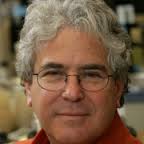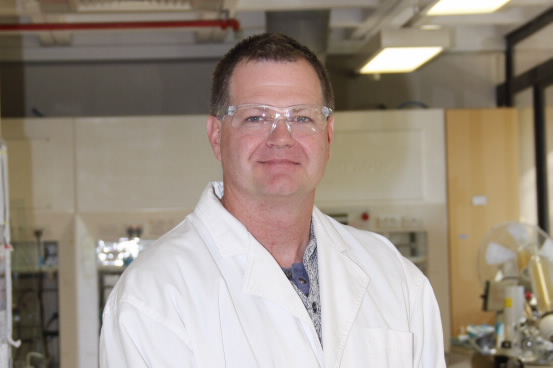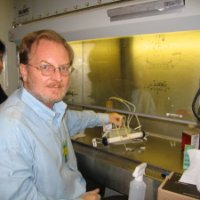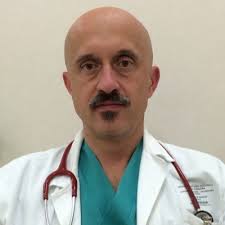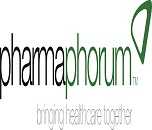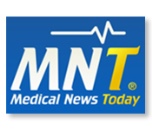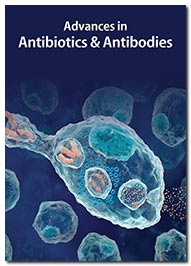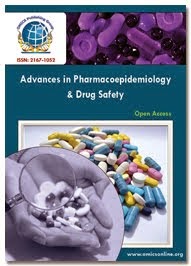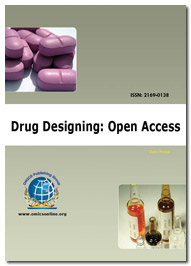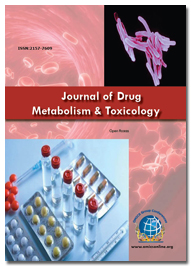Theme: The Urgency of New Antibiotics and Control of Antibiotic Resistance
Antibiotics-2015
The global systemic antibiotics market was valued at $39.6 billion in 2013 and is expected to reach $41.2 billion by 2018, at a CAGR of 0.8%. Since, 2005 this market is seen to grow at an annual rate of 6.6% until 2011. There are many companies manufacturing antibiotic these days and there are many other antibiotics present in the market such as aminoglycoside antibiotics and it covers about 79% of the global demand.
Moreover, the other antibiotics such as penicillin have 8%, tetracyclines 4%, erythromycin 7%, streptomycin 1% and chloramnphenicol has 1 % market. Some of them in this market are Bayer HealthCare AG, Roche, Astellas Pharma, Inc, Bristol-Myers Squibb Co., Abbott Laboratories, MiddleBrook Pharmaceuticals, Daiichi Sankyo Company, Limited, Cubist Pharmaceuticals, Inc., Takeda Pharmaceutical Company, Ltd Eli Lilly and Co., GlaxoSmithKline Plc, Kyorin Pharmaceutical Co., Ltd, Johnson & Johnson, Pfizer Inc., LG Life Sciences Limited, Inc, Novartis AG, Pliva d.d., Sanofi-Aventis SA, and Toyama Chemical Co., Ltd. share in the global antibiotic market.
 Welcome to Antibiotics 2015
Welcome to Antibiotics 2015
We are delighted to welcome you to the ”Antibiotics- 2015” conference in Las Vegas, USA, September 14-16, 2015. This global meeting will assemble the world leaders in the expanding fields related to the isolation, research and development of antibiotics. We are all acutely aware of the growing crisis associated with antibiotic resistance. Thus it is timely that this meeting will enable you to meet and discuss critical issues in this escalating problem.
We welcome you to this conference and look forward to your participation.
Major Sessions:
First round of abstract deadline: July 31 2015
For Abstract Submission: http://antibiotics.omicsgroup.com/call-for-abstracts.php
World Congress and Exhibition on Antibiotics (Antibiotics-2015) is scheduled from September 14-16, 2015 in Las Vegas, Nevada, USA which aims to gather the most elegant societies and industries along with the renowned and honourable persons from top universities across the globe. Originally, an antibiotic was a substance produced by one microorganism that selectively inhibits the growth of another or destroy. Over the last 30 years, no major new types of antibiotics have been developed. Without urgent action we are heading for a post-antibiotic era, in which common infections and minor injuries can once again kill people.
This is our consecutive conference and expo with reference to the overwhelming success of our previous conferences in Pharma, Therapeutics, Drug Manufacturers, Business Management and Marketing
Why to Attend?
- Keynote Forum
- Speaker Forum
- Poster sessions and awards
- Young Researcher forum
- Company Presentations
- Company Video Promotions
- Business Meetings
- Expos & Networks
- One-One meetings and many more….
You will meet!
- Food Safety Experts
- Alliances of antibiotics
- Public Health Preparedness Sectors
- Commercialization
- Strategic Drug Development
- Scientific Business Communications
- Medical Affairs and Networking
- Executive Council of Global
For more details on the relevant conferences, please click here
OMICS International through its Open Access Initiative is committed to make genuine and reliable contributions to the scientific community. OMICS International hosts over 400 leading-edge peer reviewed Open Access journals and has organized over 300 scientific conferences all over the world. OMICS International journals have over 3 million readers and the fame and success of the same can be attributed to the strong editorial board which contains over 30000 eminent personalities and the rapid, quality and quick review processing. OMICS International Conference is a great platform for the researchers to understand the need of new Antibiotics and the threat going to face by antibiotic resistance. Target Audience for Antibiotics-2015 includes Researchers, Industrialists, Students and Public Sector Experts.
Scientific sessions:
Antibiotics: Antibiotics are the secondary metabolites of microorganisms. Substances produced by microorganisms that inhibit other microorganisms. They are a group of medicines that are used to treat infections caused by germs (bacteria and certain parasites). Antibiotics are sometimes called antibacterials or antimicrobials.
Natural Antibiotics: By 1940, antibiotics had come into widespread use causing both doctors and people to gradually forget about natural antibiotics for resolving infections and the age old remedies like cod liver oil. This change in the medical paradigm has led in recent decades to abuse of drug based antibiotics and the worrisome rise of antibiotic resistant superbugs such as the “TDR”(totally drug resistant) strain of tuberculosis and Methicillin-resistant Staphylococcus aureus (MRSA) infections particularly in babies and children.
Antibiotics for Gonorrhea: Antibiotics kill the gonorrhea bacteria. Combinations of antibiotics are used to treat gonorrhea. Certain strains of the gonorrhea bacteria have become increasingly resistant to some antibiotics, including quinolones, penicillin, tetracycline, and sulfa drugs as well as some cephalosporins used to treat gonorrhea. When bacteria become resistant to an antibiotic, they no longer can be killed by that medicine. Experts recommend using combinations of antibiotics to treat gonorrhea.
Bronchitis Antibiotics : Bronchitis is inflammation of the bronchi (large and medium-sized airways) of the lungs caused by a virus. Acute bronchitis is swelling and inflammation in the main passages that carry air to the lungs. Chronic bronchitis is a long-term condition, usually results from an infection. Beta-lactam antibiotic, macrolide antibiotic, cephalosporin antibiotic are used in the treatment of a number of infections such as pneumonia, bronchitis, gonorrhea, UTI, meningitis, pneumonia, bronchitis, ear, lung, skin and respiratory tract infections.
Yeast Infection: Yeast infection, also known as candidiasis is the name for a common infection caused by yeast called candida albicans. Yeast infections usually happen in warm, moist parts of the body, such as the mouth and moist areas of skin. Persons who have diabetes that isn't controlled are more likely to get yeast infections. Lotrimin and Mycelex, Monistat and Micatin, Terazol are used to treat the yeast infection.
Antibiotics for Sinusitis: Antibiotics may be needed when symptoms of sinusitis do not respond to home treatment, symptoms are severe, or complications (such as pus forming in sinus cavities) develop. Amoxicillin is often the first choice in treating sinusitis because it is usually effective and has few side effects. It should not be used if you are allergic to amoxicillin or have been diagnosed with mononucleosis. Trimethoprim-sulfamethoxazole may be prescribed for people who are allergic to amoxicillin. Other antibiotics may be prescribed to treat bacterial infections that are resistant to amoxicillin and trimethoprim-sulfamethoxazole.
Antibiotics for Pneumonia: In general, all antibiotics used have a high cure rate for pneumonia caused by bacteria. Cure rates are greater than 80%, meaning at least 80 people out of 100 are cured. Vancomycin works against some types of bacteria that have become resistant to other antibiotics. You most likely will have some improvement in symptoms 2 to 3 days after treatment begins. Unless you get worse during that time, treatment is not changed for at least 3 days. The number of days you keep taking antibiotics depends on your illness and the type of antibiotic.
Antibiotic prophylaxis: Antibiotic prophylaxis refers to the prevention of infection complications using antimicrobial therapy (most commonly antibiotics). Antimicrobial prophylaxis is commonly used by clinicians for the prevention of numerous infectious diseases, including herpes simplex infection, rheumatic fever, recurrent cellulitis, meningococcal disease, recurrent uncomplicated urinary tract infections in women, spontaneous bacterial peritonitis in patients with cirrhosis, influenza, infective endocarditis, pertussis, and acute necrotizing pancreatitis, as well as infections.
Antimicrobial resistance: Antimicrobial resistance is resistance of a microorganism to an antimicrobial drug that was originally effective for treatment of infections caused by it. Resistant microorganisms (including bacteria, fungi, viruses and parasites) are able to withstand attack by antimicrobial drugs, such as antibacterial drugs (e.g. antibiotics), antifungals, antivirals, and antimalarials, so that standard treatments become ineffective and infections persist, increasing the risk of spread to others.
Antibiotics and Selective Toxicity: Several hundreds of compounds with antibiotic activity have been isolated from microorganisms over the years, but only a few of them are clinically-useful. The reason for this is that only compounds with selective toxicity can be used clinically. Antimicrobial drugs are chemicals that are intended to have selective toxicity against microbes, meaning that they kill microbial cells but not the host's cells. In practice, this is expressed by a drug's therapeutic index (TI) - the ratio of the toxic dose (to the patient) to the therapeutic dose (to eliminate the infection). The larger the index, the safer is the drug (antibiotic) for human use.
Prostate Antibiotics: Prostate infections comprise only small percentage of all men with prostatitis. This small percentage is comprised of acute and chronic prostatic infections. E. coli and other Gram-negative bacteria cause most acute and chronic prostatic infections. Prostatic infection symptoms include groin pain, dysuria, pain with ejaculation, reduced urine output; and may include fever, malaise, and periodic recurrence of symptoms even after treatment. Treatment of prostate infections or prostatitis is usually antibiotics; chronic infectious prostatitis may require long-term antibiotic treatment, and severe infections may require hospitalization with IV antibiotics.
For more scientifis sessions follow: http://antibiotics.omicsgroup.com/call-for-abstracts.php
Conference Highlights
- The vast area of Antibiotics
- Antibiotic Resistance: Opportunities and Challenges
- Antibiotics in Prevention and Treatment of Inflammatory and Infectious Diseases
- Antibiotics: Water Born Diseases
- Antibiotics and Allergies: Clinical Update
- Antibiotic Prophylaxis
- Clinical Biochemistry & Clinical Microbiology
- Antibiotics: Food Industry
- Antibiotics: Agriculture
- Antibiotics: Veterinary
- Antibiotics in Aquaculture: Use, Abuse and Alternatives
- Antibiotics: In Pregnancy and Lactation
- Modern antibiotics: Emerging trends, Barriers and Opportunities
- Antibiotics: Market Analysis & Business Opportunities
- Emerging trends in production and down stream process
- Antibiotics in Dental and Oral care
- Antibiotics and Child Care
- Antibiotics for Emerging and Re-emerging Diseases
- Micro organisms in Recent Drug Discovery
- Responsible Use of Antibiotics
- Clinical Trials of Antibiotics
- Optimization of therapy - general principles
- Antibiotic Regulatory Affairs
- Antibiotics and Mechanism
- Antibiotic Safety
- Impact of generic antibiotics
- Value of Antibiotics: Reality versus perception
- Antibiotics in Anti-Aging: Current Research and Future Aspects
- Antibiotics: Trauma and Surgical Infections
- Antibiotics and Arthritis
- Antibiotics: Challenges in Malaria Research
- Drug Discovery and Novel Delivery Technologies
- The Emergence of Antimicrobial resistance
- Preservation of Antibiotics
- Antibiotic and antiviral drug resistance
To share your views and research, please click here to register for the Conference.
To Collaborate Scientific Professionals around the World
| Conference Date | September 14-16, 2015 | ||
| Sponsors & Exhibitors |
|
||
| Speaker Opportunity Closed | Day 1 | Day 2 | Day 3 |
| Poster Opportunity Closed | Click Here to View | ||
Useful Links
Special Issues
All accepted abstracts will be published in respective Our International Journals.
- Journal of Drug Metabolism & Toxicology
- Drug Designing: Open Access
- Advances in Pharmacoepidemiology & Drug Safety
Abstracts will be provided with Digital Object Identifier by







